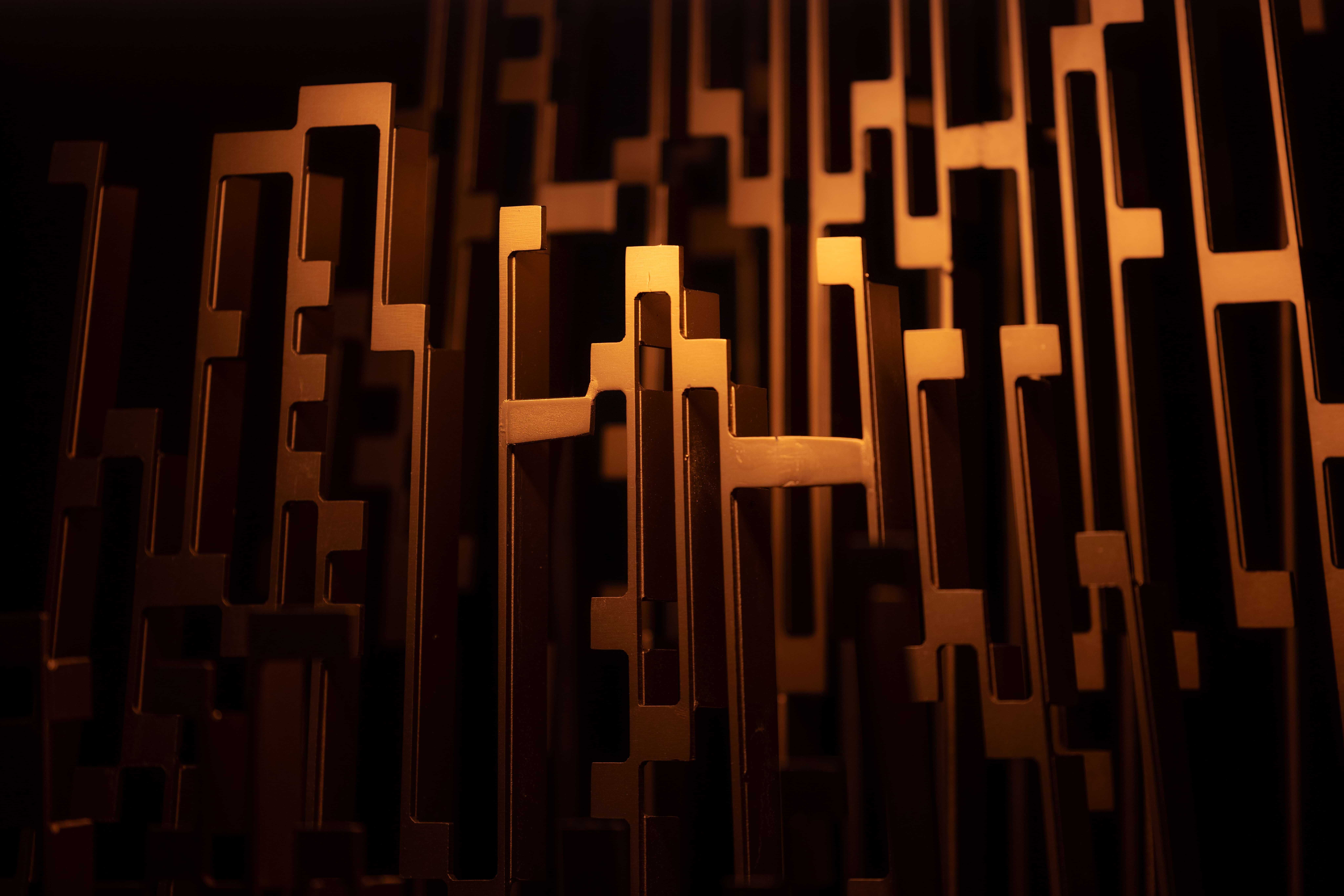
The Musée d’Orsay has invited artist, composer, and DJ Sebastién Devaud—also known as Agoria—to exhibit work that offers his unique perspective on the museum’s architecture and collections, as part of its ongoing partnership with the Tezos Foundation.
A prolific creator and enthusiastic participant in the world of Web3 digital art, Agoria’s work takes information from the natural world and processes it using algorithms and AI tools to create each finished piece.
Agoria’s exhibition “Le Code D’Orsay” will feature two works minted on the Tezos blockchain. On display from Feb. 13 to March 10, the pieces “Σ Lumina” and “Interpretation by Saccharomyces cerevisiae of The Painter’s Studio by Gustave Courbet” resonate with the museum’s collections. Agoria has also prepared an original musical composition to accompany the pieces, which museum attendees can hear as a preview at the exhibition—and live at Agoria’s Feb. 23 DJ set at the museum.
“I try to connect the physical with the digital, the living with the cryptic. Although digital and physical are often in opposition, I try to reverse this relationship and reconcile them,” Agoria said in a statement.
To Agoria, “Σ Lumina,” an intricate, metallic physical sculpture he created in partnership with artist Johan Lescure, is a way to manifest the connection between the biological and the digital.
Light projected on the sculpture creates a shadow containing a QR code, which visitors can use to interact with the work. After scanning the QR code with their smartphones, visitors are invited to blow into their device’s microphone.
“I try to connect the physical with the digital, the living with the cryptic. Although digital and physical are often in opposition, I try to reverse this relationship and reconcile them.”
– AGORIA
This individual breath, unique to each human being, transforms the digital sculpture in a way that cannot be replicated. Visitors can then mint this transformation with them as a Tezos NFT.
This process, known as live minting, is in partnership with the open generative art platform fx(hash) and the open-source FeralFile app.
Agoria and Lescure will also create between four and seven original works inspired by these visitor-created images, which will be part of a sale with profits donated to the museum.
To create the second piece, “Interpretation by Saccharomyces cerevisiae of The Painter’s Studio by Gustave Courbet,” Agoria did something wildly original. He collaborated with a group of scientists to grow a yeast culture; they engineered the conditions for the yeast’s growth to echo the historical events that shaped the painter Gustave Courbet’s life (1819-1877).
Agoria took the data from this experiment and used it in his technical processes to digitally alter Courbet’s 1855 masterpiece, “The Painter’s Studio.”
Fans of the exhibition can also enjoy a free Feb. 22 conference at the museum, featuring Agoria alongside Nicolas Desprat and Jean-Baptiste Boulé, two of the biologists who helped bring the piece to (literal) life.
The following day, Agoria will perform a DJ set, including “Getaway,” a new piece created in collaboration with Madison McFerrin and Nile Rogers. Continuing the exhibition’s theme of interpreting the museum’s historic collections through a digital lens, the music is specially adapted for “Le Code D’Orsay” and bridges gaps between historical periods and aesthetic movements.
Source: nftnow.com